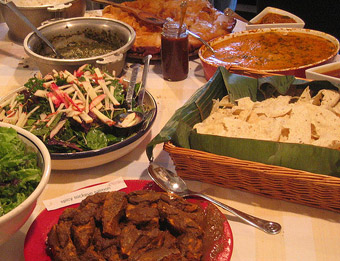THE TAKE AWAY
Fear, Part Three
Matthew 6:34
By Kersley Fitzgerald


The Series
Joshua 1:9Isaiah 41:10 and Jeremiah 29:11
Matthew 6:34
Philippians 4:6-8
Romans 8:28; 1 Corinthians 10:13

Therefore do not be anxious about tomorrow, for tomorrow will be anxious for itself. Sufficient for the day is its own trouble. Matthew 6:34Joshua 1:9, Isaiah 41:10, and Jeremiah 29:11 were very specific commands of encouragement to specific audiences. None of those three verses were addressed to believers of the church age, and to say otherwise is to misuse the Word of God.
But God has a similar message for us. In a way, it's a deeper, harder, fuller message.
Anxious — The Greek word merimnao has two basic definitions. The first is to be "troubled with cares." The second is related; it's to make the effort to ensure your needs and interests are taken care of. It covers both action and thought.
Sufficient — The Greek word here, arketos means "enough." But it's interesting to note that the root word, arkeo actually means to have enough strength to prevail.
Trouble — Malice, wickedness, depravity, and evil all characterize kakia. Itís not just a traffic accident, it's a deliberate attempt to cause harm and injury. It's the leaven of 1 Corinthians 5:8 and the malice of 1 Peter 2:1, 16.
Joshua was not to fear the Canaanites. The Jews in exile were not to fear the Babylonians. God would fight for them, He would protect them, and He would make sure their enemies would pay. In the end, Israel would triumph and prosper.
Matthew 6:34 puts Christians in a similar boat. It says we are not to concern ourselves with the malicious evil that we will encounter in the future. Instead, we are to concentrate on the malicious evil we face today. It is today that God teaches us and helps us grow spiritually. It's today that we can help others. And, really, it's today that we can take action to make our situations less hospitable to future evil. Conspiracy theories are not wanted here.
With Joshua, Isaiah, and Jeremiah, their focus was on the well-being of their nation. God would deliver their people, and Israel would be whole again. But it didn't mean that everyone would thrive, or even survive. The priority was the glory of the nation of Israel. It's only in the last few years that the last few Jews have left "Babylon." Not all of them got out alive.
For us, that's where Matthew 6:33 comes in:
But seek first the kingdom of God and his righteousness, and all these things will be added to you.The "things" spoken of here are mentioned in verses 25-31: food, drink, clothing. These basics of life are not to be our priority. We are to seek God's Kingdom first.
Seek — This isn't just to look around randomly. Zeteo means to meditate, reason, and then strive after — even to the point of requiring it. This is no passive opportunism.
Kingdom — Basileia doesn't mean a literal, physical, political kingdom. It means sovereignty, dominion, and rule. "Kingdom of God," then, doesn't mean eternal paradise, although that's included, too. It is the manifestation of God's righteousness and authority and sovereignty whenever it may appear. It is final judgment, and it is mercy for a sinner. It's a cup of water for the thirsty and Noah's Flood. It is something we experience daily, and something that we can facilitate when we submit to the Holy Spirit.
Righteousness — The Greek dikaiosune doesn't just mean virtue, rightness, what we need to be acceptable to God. It also means the way we are supposed to be. The way we were created to be. We are to strive to be who God intended us to be.
Added — This is a pretty simple word. prostithemi just means added. Joined to. Gathered.
We are not called to worry about the evil that may come in the future. Our priority is to be who God created us to be and to show God's righteousness and sovereignty to the fallen world. If we do so, we are promised: food, drink, clothes.
But, note, it doesn't say we won't starve. Or die of thirst. Or never go naked. It means God will provide the basics, but note that in the Greek for "added," there's no sense of sufficiency or enough. It's not arketos, it's just added. How much? Enough that you won't have to sin (1 Corinthians 10:13). Enough that you can do works God has for you (Ephesians 2:10).
We are not promised safety, health, or money. We are not promised that we will always be clothed and fed. We're not even promised our lives. And we're not promised protection from what evil can do to us on earth. We are promised spiritual security and eternity with God (John 10:29).
The question we must answer for ourselves is, is that enough?
Image Credit: Roland Tanglao; "Slow Food Vancouver Potluck May 10, 2005 - 16"; Creative Commons
Biblical-Truth Christian-Life | God-Father | Hardships
comments powered by Disqus
Published 2-3-16

